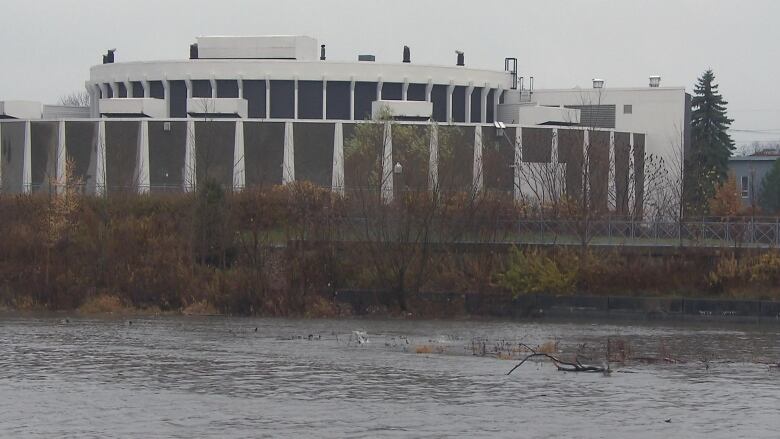Quebec City dumps raw sewage into St. Lawrence River
Release of 50 million litres of wastewater started early morning Tuesday

In a smaller-scale version of Montreal's controversial "flushgate," Quebec City is dumping millions of litres of wastewater into the St. Lawrence River, as part of maintenance work on its sewage treatment system.
MayorRgisLabeaumesaid the city had no other option but to perform the controlled release, to avoid a breakdown in the treatment system that would be "10 times worse."
- Sound familiar? Quebec City preps for raw sewage dump
- How much did "FlushGate" really contaminate the St. Lawrence River?
Tuesday's release is expected to total 50 million litres, with another 60 million litres planned for Wednesday.
Smaller wastewater flushes of 18 million litres and seven million litres will followin early December, during work on the Saint-Pascal pumping station and in February, during work on theLimoiloupumping station.
In comparison, Montreal dumped 4.9 billion litres of raw sewage into the river in October 2015 36 times more than whatQuebec City is projecting.
'Always an impact'
But Alexandre Joly,scientific research director for the non-profit environmental groupFondationRivires said no amount of raw sewage dumping should be taken lightly.
"Last year's "flushgate" in Montreal paved the way for other cities to say, 'Well, it's not as bad as in Montreal, so it's OKfor us to do it," said Joly.
"There's always an impact. It's [about] the level of impact that we accept as a society."
'Not great'but not a disaster, expert says
Labeaume said the city planned the dump for the winter, to reduce the impact on the environment.
Wastewater breaks down more slowly in the winter than in the summer, but that can actually be beneficial, because it doesn't deplete oxygen levels in the water as quickly, said Sarah Dorner, Canada research chair in source water protection at the cole Polytechnique Montral.
She points to an incident last summer, when thousands of fish died following a flush of wastewater into the YamaskaRiver.
"These reactions occurred that consumed the oxygen in the river, and there were a bunch of fish that died," she said. "When it comes to fish kills, a lot of that happens when there's too little oxygen in the water."
Dorner said oxygen levels in the water are higher in winter, and the river's flow is stronger than in the hot summer months, so wastewater can be dispersed more easily.
"Obviously these discharges aren't great for aquatic life, but there are ways of managing that really minimize the impacts."
Better planning needed
FondationRivires' Jolyacknowledges that some amount of wastewater dumping is unavoidable during work on the treatment plant, buthe said the city could have timed its maintenance work better to reduce the overall volume of sewage entering the river.
"The [discharges]during the repairs to the pumping stations could easily beavoided if they did the work at the same time as the work on the treatment plants," saidJoly.
While the city has asked residents to reduce their wastewater use during the maintenance, he said it should have worked with businesses and large institutions, such as hospitals, to get them to reduce their consumption as well.
Joly said the city should also be more specific with residents about exactly what hours the work is taking place.
"If I were a resident of Quebec City, when should I plan on not flushing my toilet?" he asked.












_(720p).jpg)


 OFFICIAL HD MUSIC VIDEO.jpg)
.jpg)



























































































